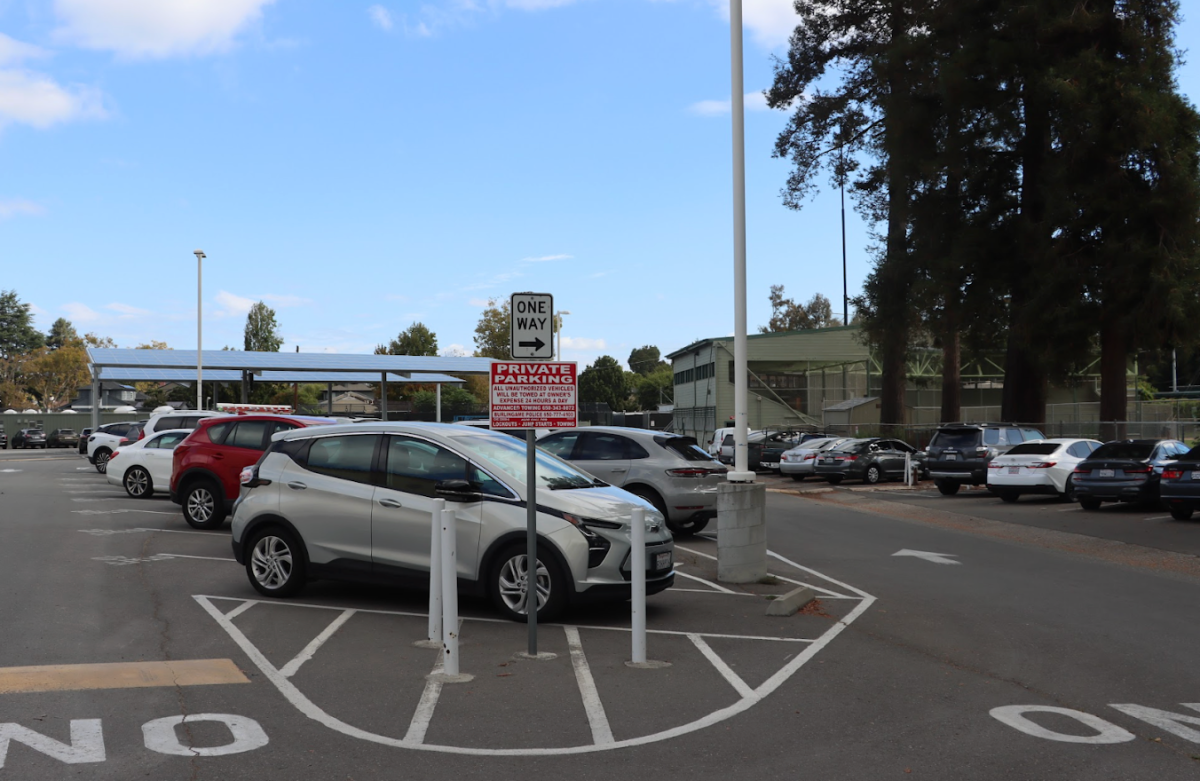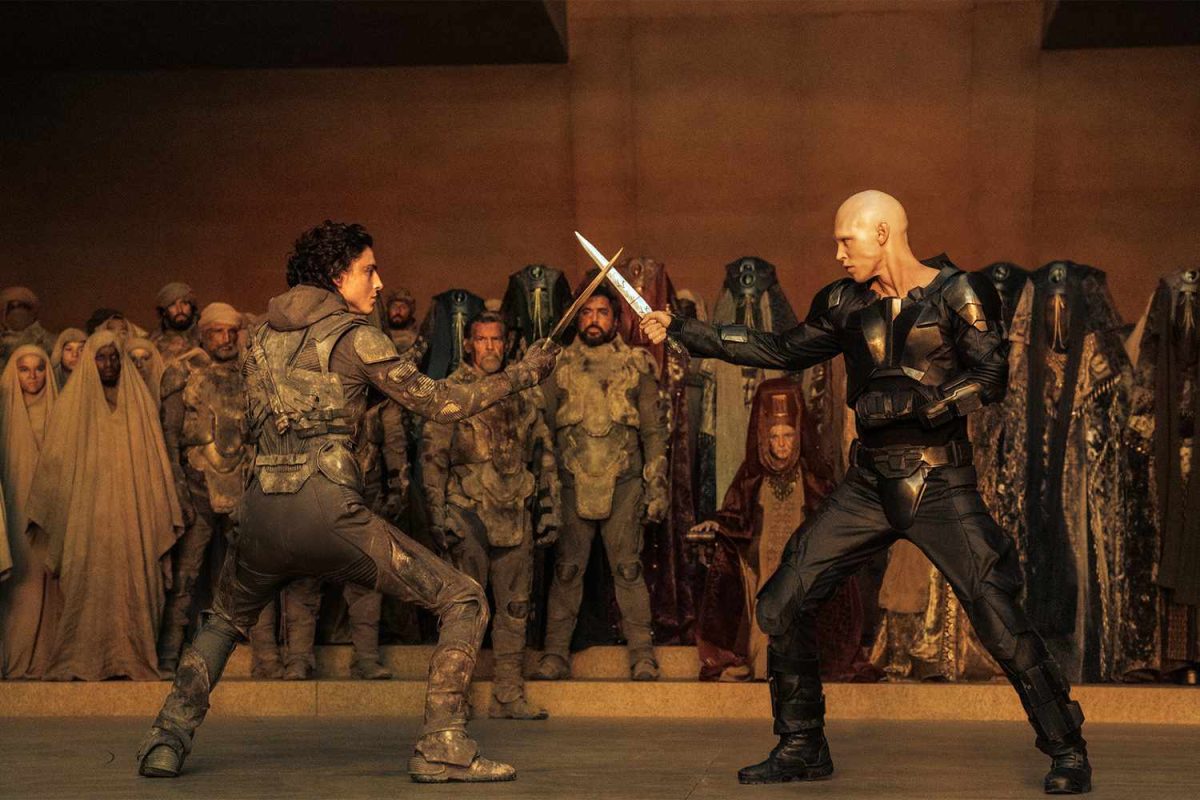Miles of orange sand dunes traverse a gigantic screen that extends 80 feet from the ground to the ceiling of a fully-packed theater. The booming cheers of Fremen soldiers echo through the walls as opposing Harkonnens’ brutal attacks unsettle thousands of cinematic souls.
Enter the world of “Dune: Part Two.” Released on March 1 to enthusiastic audiences worldwide, the epic is a follow-up to 2021’s “Dune: Part One” and, like its predecessor, is an adaptation of Frank Herbert’s 1965 novel “Dune.” Directed by renowned sci-fi director Denis Villeneuve, “Dune: Part Two” saw a massive opening weekend of $179 million globally and boasts a 94% on Rotten Tomatoes due to exceptionally positive reviews by critics and movie-goers alike.
The film takes place on the alien planet Arrakis and follows the story of Paul Atreides (Timothée Chalamet), who, after the murder of his father and the Atredies people by the cruel Baron (Stellan Skarsgård), joins the rebel Fremen with his mother, Lady Jessica (Rebecca Ferguson). Their goal becomes clear early on: to fight back against the Baron’s Harkonnen empire and reclaim the capital city of Arrakeen. As the movie progresses, Paul, or as the Fremen call him Muad’dib, evolves into a religious figure called Lisan al-Gaib, who intends to return the poor Fremen to a green paradise. However, in his quest for peace, Paul gets caught up in his power, losing sight of himself. Despite achieving his original goals — extinguishing the Harkonnen empire, defeating the Baron’s mighty son Feyd-Rautha (Austin Butler) in a suspenseful duel and dethroning the emperor, Shaddam IV (Christopher Walken) — he ultimately wages war on the other unabiding houses to stay in power.
Although the film’s story is complex, nothing feels overwhelming or rushed because Villeneuve affords a great deal of time to sequences such as Paul’s speech to millions of Fremen and the illustrious final battle between the Fremen and Harkonnen armies. David Lynch’s “Dune” from 1984 struggled heavily to condense and streamline Herbert’s long and detailed story; Villeneuve makes the correct choice to divide the book into two films, and their combined runtime of 5 hours and 21 minutes helps relieve potential confusion.
In addition, this ample length allows for more character building in “Dune: Part Two.” Chani (Zendaya), who plays Paul’s Fremen companion, begins as the leader’s friend and turns into a love interest, but by the end, she distances herself from him as she cannot bear the murderous tyrant he has become as well as his decision to marry the emperor’s daughter, Princess Irulan (Florence Pugh). Paul’s character transformation from a lost boy to a hero to a murderer also feels satisfactory and natural as it occurs over an extended period. And Chalamet does it justice — the Duke of Arrakis is undoubtedly his finest cinematic performance.
Even with its great actors, “Dune: Part Two” would not be complete without its legendary director. Villeneuve has directed the most stupendous sci-fi pieces of the last decade — films like 2017’s “Blade Runner: 2049” and 2016’s “Arrival,” and he has once again outdone himself. The use of Computer Generated Imagery is ubiquitous, but it never feels excessive, much like his other pictures. Villeneuve mainly prefers wider shots of grandiose landscapes, which is necessary for a film as cinematic as “Dune: Part Two.” Especially when viewed in 70mm IMAX, it is as close a movie can be to visual perfection; one could simply marvel at the screen for hours to examine intricate details.
The film’s ending is also well constructed in that it clearly conveys that worshiping a powerful individual is inherently dangerous. Additionally, it is successful because, like the book, it ends on a cliffhanger of an upcoming war and prepares for a follow-up. According to Villeneuve and in line with Herbert’s novel series, this sequel will be “Dune: Messiah.”
In short, “Dune: Part Two” proves to be an excellent movie and presents more. Yes, it has great characters and a deep storyline, but more importantly, it does what all movies should do: It takes the audience on a journey.














































Susan Cooper • Nov 19, 2024 at 7:26 am
I though Dune Two would be boring.